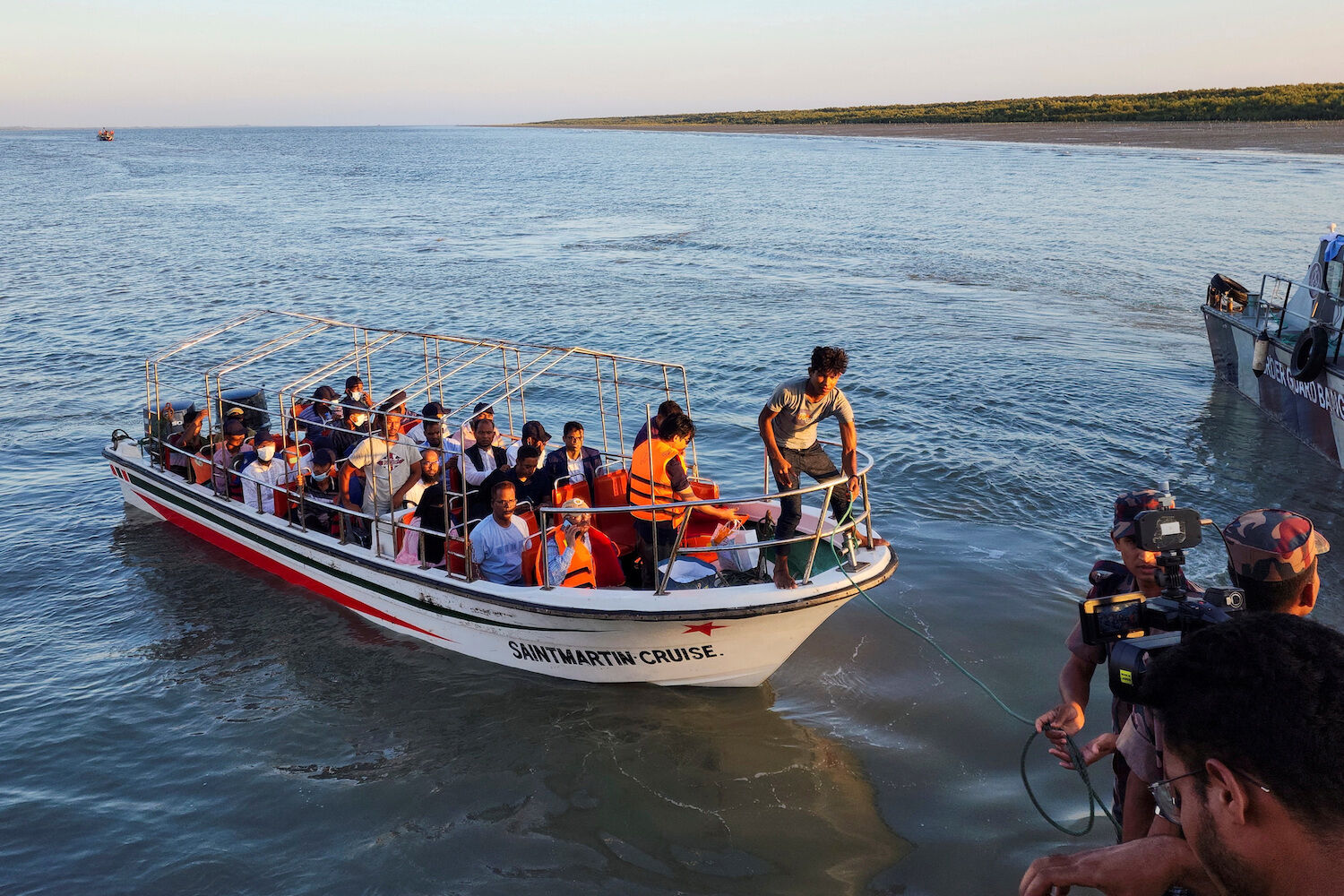Rohingya refugees refuse repatriation without citizenship and security guarantees in Myanmar

Rohingya refugees in Bangladesh announced on Saturday that they would refuse to return to Myanmar unless their eventual repatriation ensured security and guaranteed citizenship rights. The statement came after a group of twenty Rohingya refugees were allowed to visit Rakhine State for the first time since they fled to Bangladesh following a military-led crackdown in 2017.
Nearly one million Rohingya Muslims currently live in camps in the Bangladeshi border district of Cox’s Bazar, having escaped persecution in the Buddhist-majority Myanmar. Bangladeshi officials have made multiple visits to Myanmar to discuss the repatriation of the refugees, and the recent visit by Rohingya refugees to Rakhine State was intended to build confidence in the resettlement process.
The group of Rohingya, accompanied by seven Bangladeshi officials, visited Maungdaw Township and nearby villages in Rakhine State on Friday to assess the preparations for their possible return. However, the refugees expressed concerns about the conditions in Myanmar and the reluctance of the Myanmar authorities to grant them Myanmar citizenship.
Oli Hossain, a 36-year-old father of six, who was among the visiting refugees, told Reuters that they demanded land rights and the ability to construct their homes. He added that they would only return if they were granted citizenship and all related rights.
Myanmar currently offers the Rohingya national verification cards (NVC), which the refugees consider insufficient. Abu Sufian, 35 years old and a father of three, stated that the Rohingya should be recognised as Myanmar citizens and that they would not accept the NVC. He argued that the cards would identify them as foreigners.
Mohammed Mizanur Rahman, Bangladesh’s refugee relief and repatriation commissioner in Cox’s Bazar, reiterated that a safe, voluntary, dignified, and sustainable repatriation is the ultimate goal. He also mentioned that a Myanmar delegation would visit Bangladesh within a week to continue building trust with the Rohingya community.
Myanmar’s military had previously shown little interest in welcoming back the Rohingya, who have long been considered foreign intruders and have faced systematic discrimination and abuse in their home country. However, a Myanmar delegation visited the refugee camps in Bangladesh in March to verify the identity of several hundred returnees for a pilot repatriation project.
Although no official date has been set for the repatriation, a Bangladeshi official shared that approximately 1,100 refugees would be involved in the initiative. Previous attempts at repatriation in 2018 and 2019 failed as the refugees, fearing further violence, declined to return.
The UN refugee agency (UNHCR) stated that every refugee has an inherent right to return to their home country, but added that such returns should be voluntary. The UNHCR emphasised the importance of dialogue with the Rohingya refugees in order to achieve an informed decision on their return, adding that the visits to Rakhine State are a crucial element in the voluntary repatriation process.
Latest Thailand News
Follow The Thaiger on Google News:


























